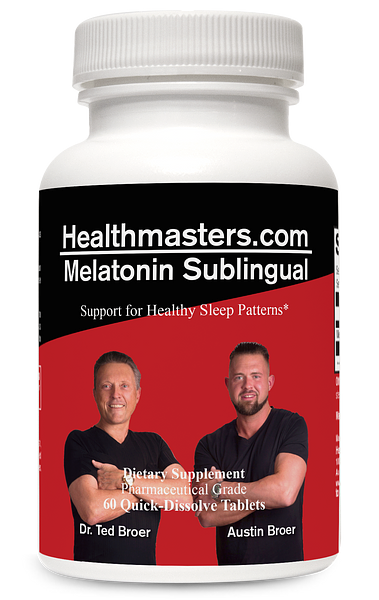Melatonin Sublingual
Description
🌙 Unlock the Power of Restful Sleep & Revitalize Your Health with Melatonin Sublingual! 🌙
Are you tired of tossing and turning at night? Struggling with sleep patterns or feeling exhausted during the day? Melatonin Sublingual is your ultimate solution to help you restore your sleep cycle, revitalize your energy, and support your overall health!
✨ Why You NEED Melatonin Sublingual in Your Life:
💤 Supports Healthy Sleep Patterns – Melatonin is your natural sleep ally, designed to promote healthy, restful sleep. Whether you're dealing with jet lag, working night shifts, or simply struggling to fall asleep, this premium formula helps regulate your sleep-wake cycle and supports deep, uninterrupted rest. Say goodbye to sleepless nights and hello to restorative sleep that leaves you feeling refreshed! 🌙
💖 Boosts Antioxidant & Cardiovascular Health – Melatonin is a powerhouse when it comes to antioxidant activity, supporting your body’s ability to combat oxidative stress and protect cells. By supporting cardiovascular health, it helps regulate blood pressure and promotes overall heart wellness. Feel the difference in your heart, mind, and body! 💪
🦠 Supports Immune System Activity – Keep your immune system strong with melatonin’s ability to support T-helper cell function and cytokine balance. This is your first line of defense—helping your body stay healthy and resilient against environmental stressors. Stay strong and energized, inside and out! 💚
💡 Supports the Natural Function of the Pineal Gland – The pineal gland is responsible for regulating your body's biological rhythms, and melatonin supports its natural function. By enhancing your body’s ability to respond to light and darkness, this supplement helps you maintain a balanced sleep cycle and restores circadian rhythm. 🌞🌙
💥 Fast-Acting Sublingual Delivery – The sublingual format ensures quick and effective absorption for fast relief when you need it the most. No need to wait for slow pills to kick in—experience the benefits immediately as it dissolves under your tongue. 🕒
🌟 Why Choose Melatonin Sublingual?
✅ Naturally Enhances Sleep Quality
✅ Supports Antioxidant & Cardiovascular Health
✅ Boosts Immune Function & Energy
✅ Fast, Effective Sublingual Delivery
✅ Non-Habit Forming and Safe
🛒 Ready to Sleep Like Never Before?
Don't wait any longer—take control of your sleep and overall health with Melatonin Sublingual. 🌙 Improve your quality of life, wake up feeling refreshed, and enjoy greater vitality with every passing day.
🌟 Buy Now and experience the magic of melatonin! ✨💤
Opps
Sorry, it looks like some products are not available in selected quantity.






